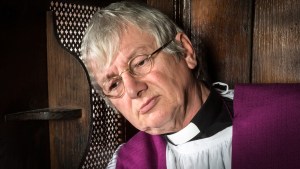A new petition submitted to the Sejm – the lower house of the Polish Parliament – has proposed a ban on sacramental Confession for children below the age of 18. Such a bill would create a myriad of problems, not least of all that it would also push back First Communion to the age of 18, as First Communion is usually preceded by sacramental Confession.
Aleteia’s own Bogna Białecka, of the Polish edition, reported that the petition was submitted with some 12,000 signatures, which is rather small for a nation of more than 36 million, over 70% of whom are Catholic. The petition was submitted to the Sejm in October and referred to the Petitions Committee in November, which will now have three months to make a decision on the proposal.
The report notes that one of the objections listed in the petition is that it “prematurely confronts minors with the concept of good and evil.” The argument raises the question of when children are of an age in which they should be confronted with such concepts. Białecka points to studies that have found that children as young as pre-school age understand when they have done wrong. Furthermore, confronting their wrong-doing is pivotal to their moral development.
Much of the child’s reaction to their own wrong-doing will be impacted by their environment. For example, children in a hostile environment might attempt to erase all evidence of wrong-doing, while those in a supportive environment are more willing to confess their misdeeds as a way of relieving their consciences.
“In this context, confession plays an invaluable, positive role,” Białecka writes. “A child who knows that God is love, that he loves them very much and wants their good, sees confession as a way to obtain forgiveness, assurance of love and a chance to make amends — also in situations when physical repair of the evil done is impossible.”
Priests prepare children with this in mind
It is actually a topic that is considered by priests when preparing children to make their First Confession.
Fr. Marcin Węcławski, a Polish priest of 40 years, cast a positive light on children’s sacramental Confessions in a letter titled “Let the Children…”:
“There is always the same joy in the sacrament of penance, including the youngest ones. Children, like every person, have a conscience, they have a sense of guilt,” Fr. Węcławski wrote. “The way to free them from this anxiety is not to convince them that there is no sin. The way is to lead them to Christ and help them experience God as the Father of mercy. Denying children this benefit is a great wrong.”
In an interview with the Polish publication Misyjne, Poznań Metropolitan Archbishop Stanisław Gądecki called the proposal to ban childhood sacramental Confessions “complete nonsense.”
He noted that the Sacrament of Confession has existed for some 2,000 years, and suggested that one sparsely signed petition will not stop the practice.
Archbishop Gądecki also took exception to the petition’s description of Confession, posing it as “an experience of humiliation and fear, a traumatic, nasty event that children did not want and were unable to defend themselves against.”
This, he mused, reminded him of “what we faced under Stalinism.”
“Back then, it was also said that children should not be baptized or go to church until they were 18. Only later can they – of course, those who can withstand the anticlerical pressure – come and confess. These are old communist tactics, supported by questionable psychology,” he said in an interview.
Furthermore, the archbishop concluded that the author of the petition was not taking into account that children need “formation in truth at every stage of development.” Childhood development, he argues, does not start at the age of 18, but from the moment we are born:
“All sacraments form a person slowly, layer by layer, year by year. You cannot tell a child: you will start learning when you turn 18,” emphasized the Metropolitan of Poznań.




